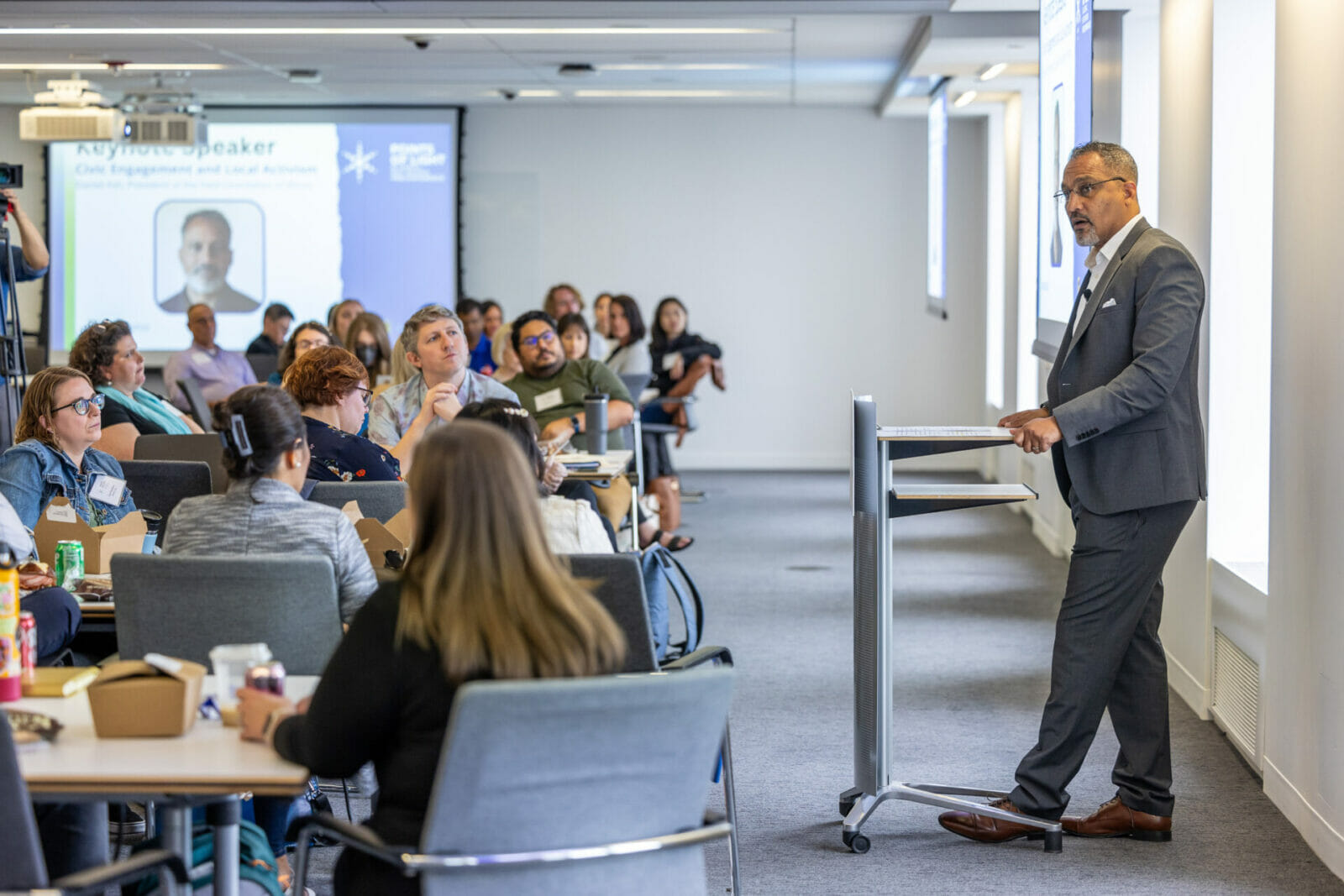Reclaiming the Public Square: Bringing Communities to the Table

Unlocking the Power of Voice through Community Engagement
The Fourth of July should be a time of reflection about the state of our nation and what we hope for its future, but how do we keep the momentum going year round? Civic engagement requires a renewed commitment to drive real and sustained change in communities worldwide. The work demands an inclusive public square where everyone’s perspectives are heard, valued and leveraged.
Daniel O. Ash, president of The Field Foundation of Illinois, has a long history of bringing together disparate voices as a strategy for tackling systemic racism. In a recent presentation at the 2023 Points of Light Conference in Chicago, he highlighted the importance of reactivating the public square as a space for civic discourse, idea exchange and community celebration. Ash emphasized the need to reclaim this space and rebuild the civic relationships that underpin our society.
“I have spent all my career dealing with the various facets of segregation fueled by systemic racism that has plagued our beloved city [of Chicago], while recognizing its brilliant architecture, public art, diverse cultures and civic generosity,” said Ash.
To truly harness the power of voice, it’s essential to ensure that all community members have a seat at the table. The Points of Light Civic Circle® is a framework that helps people connect to opportunities and understand that doing good comes in many forms. Voice is one of its most powerful elements, because true change occurs only when everyone’s voices are included and respected.
So, how can we bring communities to the table and activate their voices within the public square?
1. Value Differing Voices
Creating an inclusive public square requires actively seeking diverse perspectives and ensuring a platform for underrepresented voices. This means asking community leaders who have historically been marginalized to lead the conversations. A more comprehensive understanding of the issues that affect communities will, in turn, demand inclusive solutions.
2. Promote Dialogue and Active Listening
Engaging in open and meaningful dialogue is essential for fostering civic engagement across different groups and generations. Encouraging active listening builds for empathy for and promotes the sharing of others’ experiences and perspectives. Actively seek opportunities for community members to come together, exchange ideas and engage in constructive conversations.
3. Facilitate Collaborative Decision Making
To activate the power of voice, communities need to lead decision-making processes. Ensure that established inclusive and collaborative decision-making mechanisms exist, such as community forums, town halls or advisory committees. Decisions made by a community result in a more active and participatory democracy.
4. Cultivate Community Leadership
Invest in community leadership who share the understanding that inclusivity is crucial for sustaining long-term change. Identify and support emerging leaders, providing resources, training and platforms necessary to amplify their voices and drive positive transformation. By nurturing community leadership, a ripple effect is created, inspiring others to step forward, take action and become advocates for change.
Bringing communities to the table is a fundamental step in activating the power of voice within the Civic Circle framework. By promoting dialogue, facilitating collaborative decision-making, and cultivating community leadership, we can create an inclusive public square that reflects our national communities.
The journey toward a more equitable and just society requires collective action, and by combining elements of the Civic Circle, you can amplify your impact. Each one of us has the power to contribute and make a difference. So, invite others to the table, and reclaim the public square as a space where all voices are valued, heard and respected.
What are your thoughts on activating the power of voice through community engagement? How can we bring communities to the table? Follow us on social media to share your ideas and experiences.
